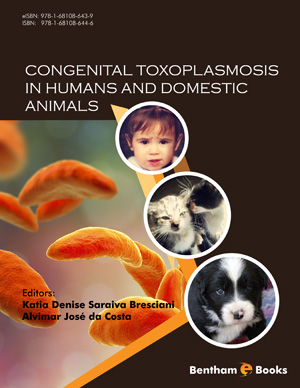Abstract
Toxoplasma gondii is a parasite of the phylum Apicomplexa. It is an obligate intracellular protozoan that affects humans and a diverse range of vertebrate hosts. The infection of herbivores occurs primarily through ingestion of oocysts in food and contaminated soils and water. Natural infection by T. gondii in cattle was originally reported in Ohio, USA, which also reported the first experimental infection by this protozoan in cattle. The congenital transmission of T. gondii in cattle was originally described in 1980. The congenital transmission may frequently be affected by the pathogenicity of the T. gondii strain and this zoonotic parasite is example of endogenous and exogenous transplacental infection, which emphasizes the need for greater precision in describing field or experimental research that describes infection passing from cows to fetuses, as well as the actual importance of cattle, in different countries, on the epidemiology of toxoplasmosis.
Keywords: Abortion, Bioassay, Cat, Diagnosis, ELISA, Endogenous transplacental infection, Exogenous transplacental infection, IFA, Oocysts, Pathogenicity, PCR, Prevalence, Tachyzoites, Toxoplasma gondii, Transmission.






















